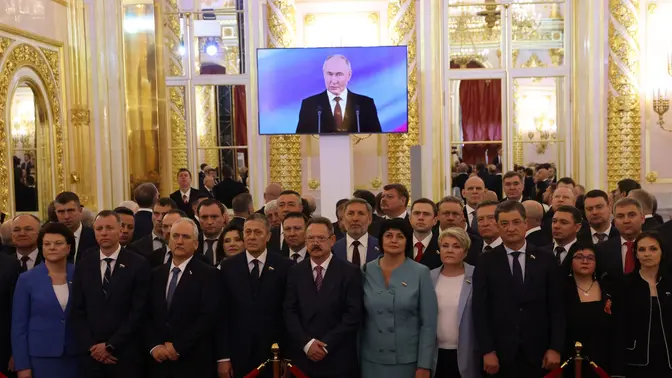
Russia is seeking to use cryptocurrency as a new method to manage payments to its trading partners, such as China, India, and the UAE, amid ongoing Western sanctions that have impacted its economy due to its conflict in Ukraine.
Anatoly Aksakov, head of the Duma’s lower house, announced the decision, stating that it represents a significant shift in the financial sector. The Duma passed the bill on Tuesday after three readings.
Following its invasion of Ukraine, Russia has faced severe sanctions from the U.S. and its allies, including the exclusion of some Russian banks from the SWIFT international banking system. In response, Russia has attempted to utilize the currencies of its trading partners and engage in complex transfer schemes to evade sanctions. However, the global dominance of the dollar and euro has complicated these efforts, prompting Russia to explore digital currencies as an alternative.

The bill is now set to go to the Federation Council and will require final approval from President Vladimir Putin. It aims to regulate cryptocurrency mining, a significant activity in Russia due to its favorable conditions for mining, such as cooler temperatures and low electricity costs.
Putin has previously expressed concerns about the energy demands of crypto-mining. The new legislation will restrict large-scale mining operations to government-approved companies, which will be required to provide transaction data. The Central Bank of Russia plans to leverage these regulations to introduce a government-backed “digital ruble,” which is intended to improve the country’s economic infrastructure.

The law is scheduled to take effect in September. While cryptocurrencies will not be permitted for domestic payments within Russia, they will facilitate quicker handling of delayed payments to key international partners. Russian Central Bank Governor Elvira Nabiullina stated that the first official crypto transactions will occur by the end of the year. The delays in payments have contributed to an 8% decrease in Russian imports this year. Nabiullina highlighted that the increasing risks of secondary sanctions are complicating payments for a wide range of imported goods.




